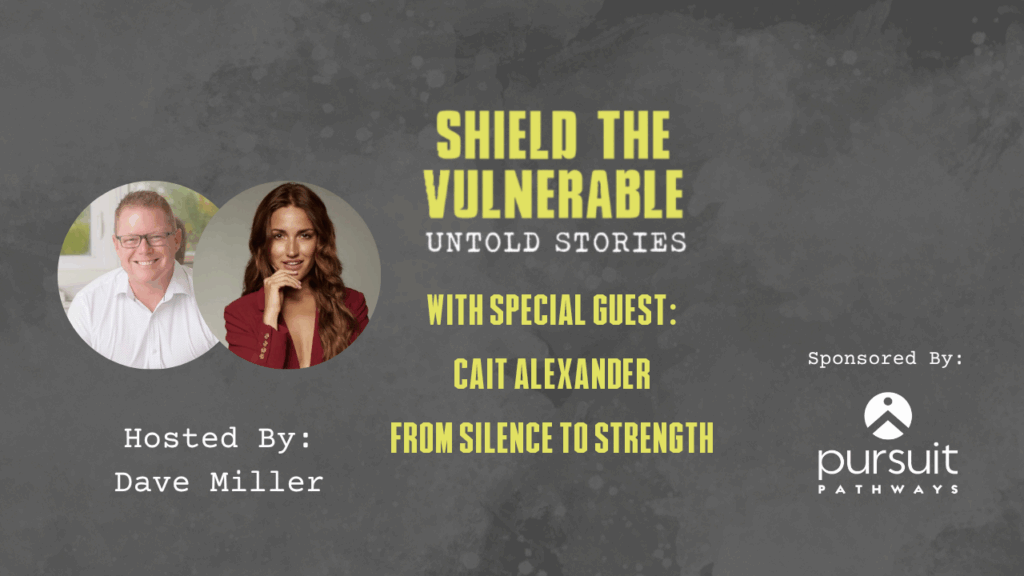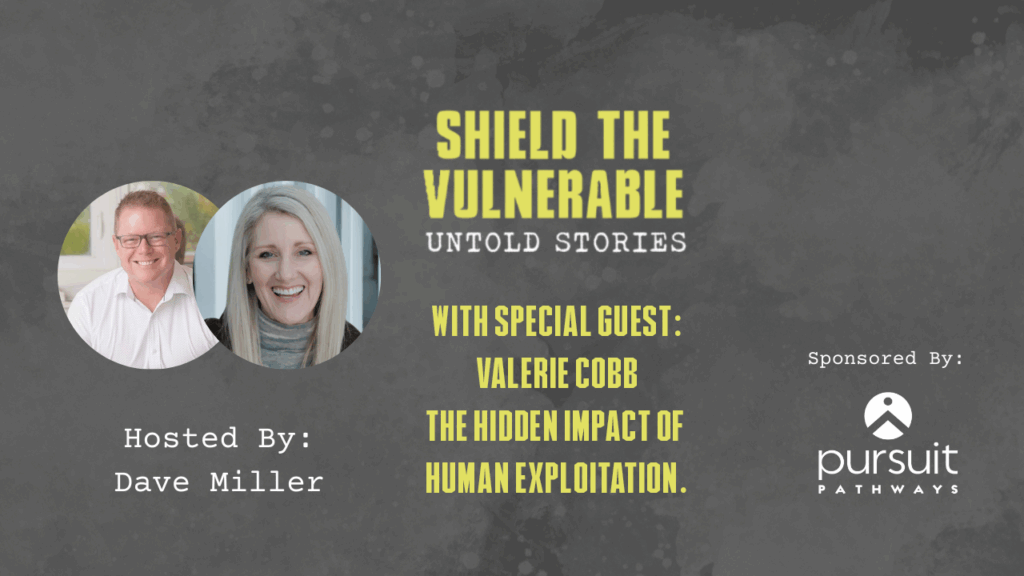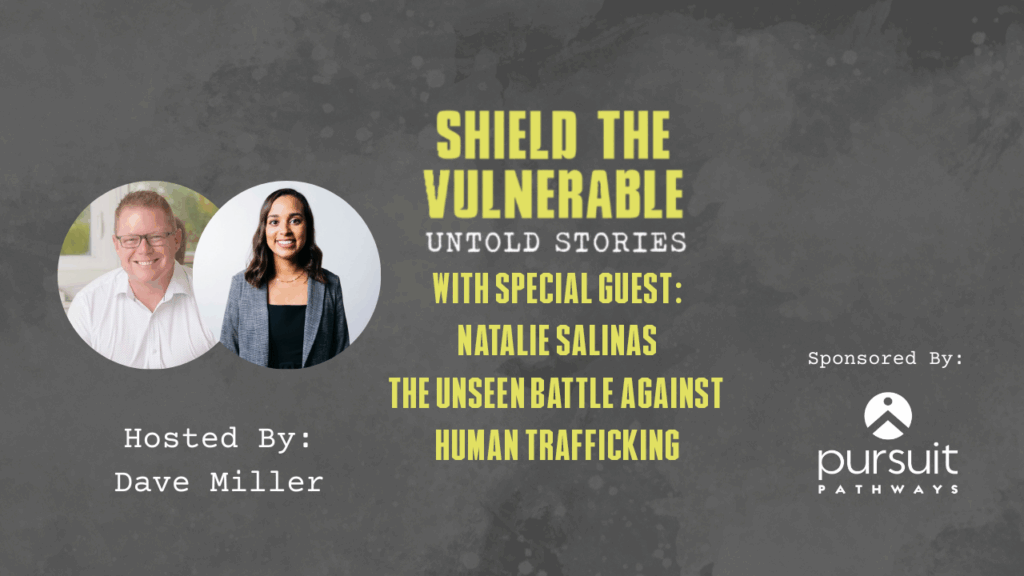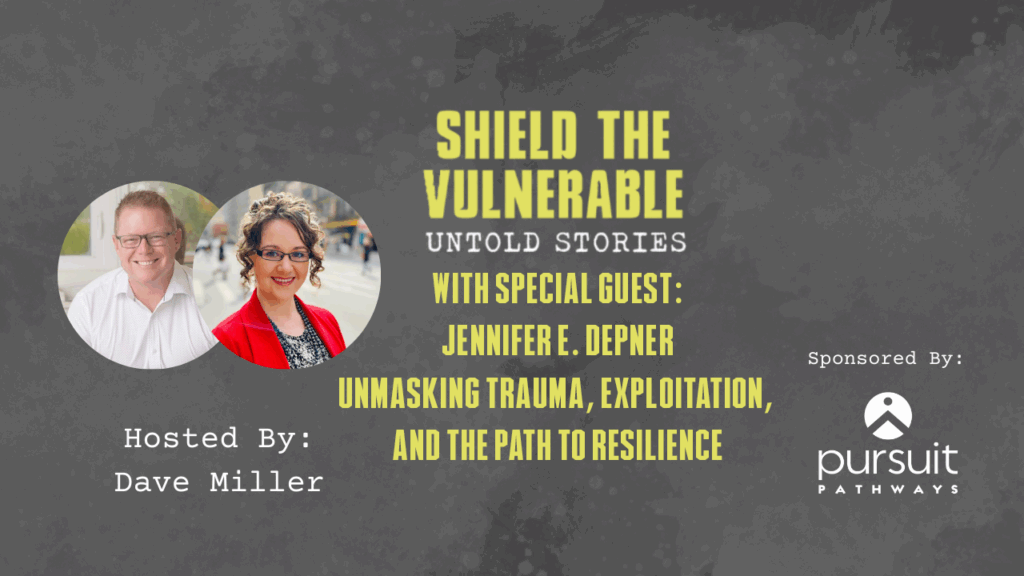Shield The Vulnerable: From Silence to Strength

When Cait Alexander nearly lost her life in 2021 at the hands of her intimate partner, she had no idea that surviving the attack would only be the beginning of her fight. Despite having physical evidence, a SWAT response, and multiple charges filed, the Canadian justice system failed to prosecute her abuser. That betrayal ignited something deeper than fear or trauma—it sparked a movement.
In this episode of Shield the Vulnerable: Untold Stories, Cait reveals how her own survival led to the creation of EVE, an organization that now helps other women navigate the very system that abandoned her.
The System Was Supposed to Protect Her—It Didn’t
Cait was a successful artist, model, and musician living in Canada when she met someone during COVID-19 who appeared to be kind, stable, and value-aligned. Within seven months, that man nearly killed her.
There were photos. There were videos. There was a SWAT team. And still, the charges—attempted murder among them—were eventually thrown out due to Canada’s Jordan’s Rule, which prioritizes a defendant’s right to a speedy trial over a victim’s right to justice. Cait never got her day in criminal court.
“I’m done doing it your way.
We’re doing it my way now.”
From Survivor to Relentless Advocate
Rather than accept the failure of the system, Cait took action. She created EVE—End Violence Everywhere—to provide what she never had: real support, immediate advocacy, and unwavering accountability.
EVE meets survivors where they’re at. Whether it’s finding shelter, dealing with abusive partners still at large, or securing therapy and legal aid, EVE helps women escape and rebuild with dignity. Cait and her team aren’t interested in red tape. If a survivor needs groceries, hotel safety, or trauma-informed therapy, they make it happen—fast.
Why EVE Exists
- 97% of abusers in EVE’s community are not incarcerated
- 56% of criminal cases in Canada are thrown out
- 1 in 3 women will experience violence in their lifetime
But these aren’t just numbers—they’re lives. And too often, the system treats victims like data points, offering apologies instead of justice. EVE exists because the system is failing, and survivors are often forced to go it alone. Cait refused to let that continue.
Bridging the Gap Between Silence and Support
What makes EVE different? It doesn’t just offer services—it offers connection. When the police stop calling, when prosecutors forget your name, when legal aid is asleep on the Zoom call—EVE is still there.
Their advocates don’t clock out. They create WhatsApp groups so survivors can reach out day or night. They pay for safe housing, therapy, and groceries. They don’t just advocate—they act.
“We are the middle person.
The human contact.
The ones who answer the phone when no one else will.”
Building More Than an Organization—Building a Movement
EVE is growing fast, but Cait is just getting started. Her vision includes:
- Modular housing for survivors
- A survivor treatment center
- Peer advocates in every hospital across Canada
- Legislative reform to make victim protections enforceable
Cait is now leading a constitutional lawsuit against the Canadian government with 21 other plaintiffs, demanding reform to the Canadian Victims Bill of Rights.
“The laws were written by people,” she says.
“So we’re going to write new ones.”
What Survivors—and Supporters—Need to Know
- Most survivors never see justice. The system is designed to protect abusers more than victims.
- Silence is where abusers thrive. Speaking out, even to one trusted person, can break the cycle.
- Real-time help matters. Survivors need flexible, human-centered support—not bureaucracy.
- We must push for legislation, not just awareness.
Conclusion
Cait Alexander’s story isn’t just about survival—it’s about rising from the ashes with a purpose. EVE was born not just to help, but to fight—for every woman silenced, every child endangered, and every survivor betrayed by the very system meant to protect them.
“I can’t change what happened to me.
But I can make damn sure it doesn’t happen to the next woman.”
If you know someone who needs help—or if you want to be part of this change—visit
EndViolenceEverywhere.org.
On Shield The Vulnerable: Untold Stories, host Dave welcomes Valerie Cobb, CEO of The Impact Book. A successful entrepreneur and advocate, Valerie shares insights on exploitation, human trafficking, and workplace violence, emphasizing the need for awareness, education, and action.
In this episode of Shield The Vulnerable: Untold Stories, Natalie Salinas discusses the harsh realities of human trafficking, exploitation, and workplace violence. Learn about the emotional and financial toll of these issues and how awareness can help prevent them.
In this episode of Shield The Vulnerable: Untold Stories, Natalie Salinas discusses the harsh realities of human trafficking, exploitation, and workplace violence. Learn about the emotional and financial toll of these issues and how awareness can help prevent them.
In today’s evolving work environment, employee engagement goes beyond simply showing up. In a recent conversation featured on Shield the Vulnerable: Untold Stories, Dave sat down with Adam Hickman….
In this powerful episode of Shield The Vulnerable: Untold Stories, Cheryl Greenfield shares her harrowing yet inspiring story—from childhood sexual abuse by a family member to decades of silence, trauma, and inner battles.
About Cait Alexander
From her small-town roots to walking international runways for over seven years, Cait has modeled for world-renowned brands including
GQ, La Vie en Rose, Cadbury, and FCUK, while embracing diverse cultures around the globe.
Her love for performance began in childhood theatre and grew into roles in major television series like
Star Trek and The Handmaid’s Tale.
She even explored Bollywood, filming several projects during her time in India.
As a musician, Cait’s voice is powerful yet tender—emotionally honest and unforgettable.
Her performances linger in the heart long after the final note.
A lifelong writer, Cait was first published internationally at just 11 years old.
Since then, she’s written nearly every day, crafting poetry, essays, and advocacy messaging with ease.
Her command of language is instinctive, using words the way a sculptor shapes clay—
blending fragility with force, softness with strength.
Fiercely observant, romantically intense, and deeply analytical, Cait is a passionate force of nature.
Through End Violence Everywhere, she is building a global network of survivor-to-survivor support, changing policy,
and ensuring every voice is heard in the fight to end violence.






